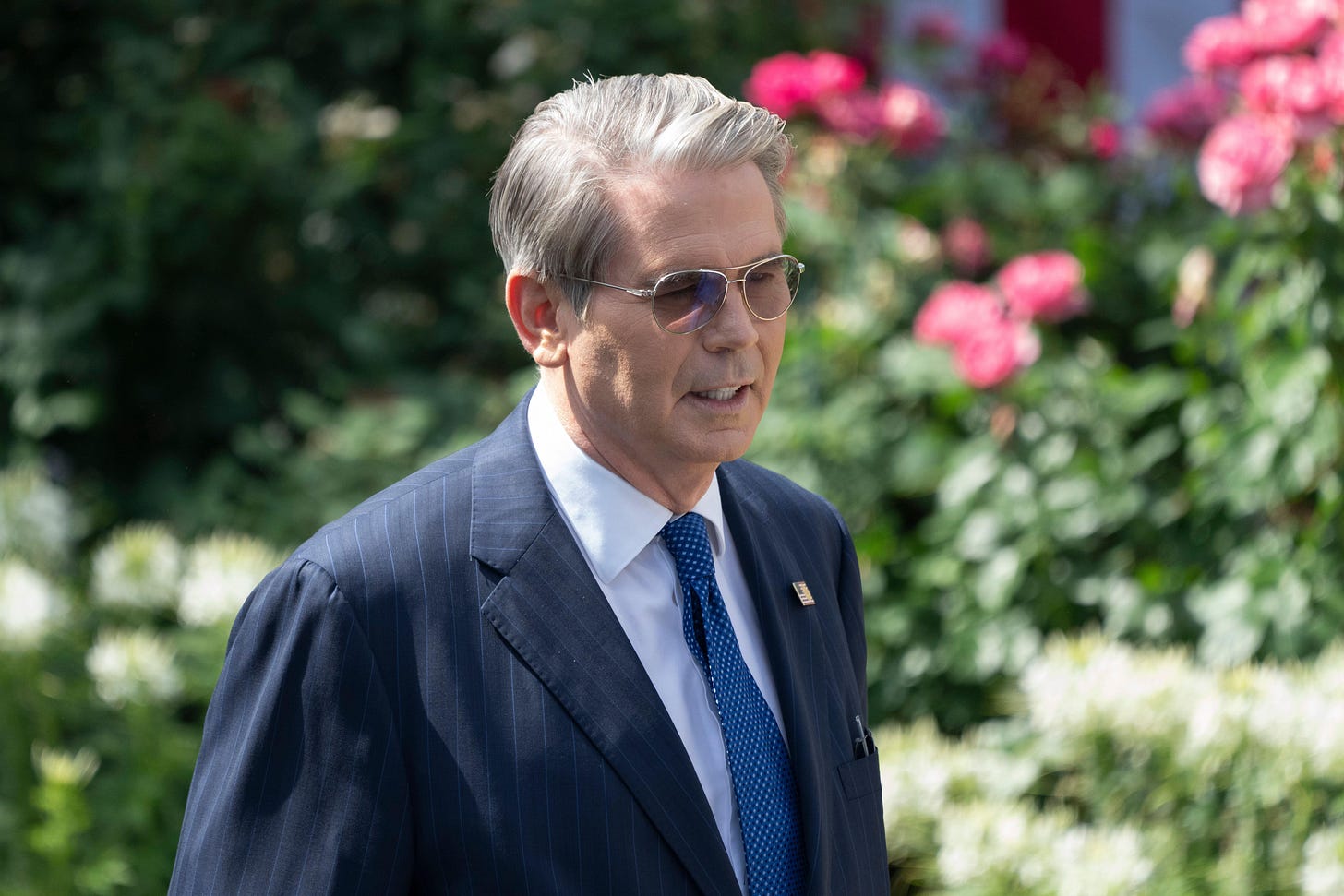South Koreans “have made a fiery judgement against the insurrection regime”, declared the country’s new President, Lee Jae-myung, this evening, after voters flocked to the polls in record numbers to draw a line under Seoul’s biggest political crisis in decades.
South Korea has elected a new leader six months after former Conservative President Yoon Suk Yeol made the ill-fated decision to declare martial law, sparking a constitutional crisis and leaving his People Power Party in tatters.
Yoon has since been arrested, impeached and charged with insurrection. If convicted, he could face life in prison or even the death penalty.
No-one has benefited more from the political chaos unleashed by Yoon than his longtime bitter rival, Lee, who is celebrating that “the darkness of insurrection” has been “driven out by the light of democracy".
The 61-year old liberal Democratic Party leader has won an estimated 48.8 per cent of the vote, ahead of his Conservative rival Kim Moon Soo, a former member of Yoon’s cabinet.
It’s worth remembering that Yoon’s impeachment passed the National Assembly in the first place because members of his own ruling party put democratic principles above tribal loyalty. Even so, Lee has labelled the snap election “judgement day” against Kim and the People Power Party, accusing them of having condoned Mr Yoon’s martial law attempt.
Lee, who advocates for enhanced welfare for the country’s poor, has a rags-to-riches origin story that has earned him support from working-class voters who feel disenfranchised by the political elite.
Born in a remote mountain village, he skipped school to become a factory worker before, at the age of just 13, suffering a permanent injury after his wrist was crushed by a press machine. Lee was later granted a full scholarship to study law and worked as a human rights lawyer for almost two decades before entering politics in 2005.
His political career, however, has been tainted by a series of scandals, including a drunk driving incident and an alleged extramarital affair. Perhaps most crucially, he also stands accused of violating the Public Official Election Act by knowingly making false statements during the last presidential campaign in 2022. The case is still awaiting a verdict. During a TV debate, Lee denied personally knowing Kim Moon-ki, a key figure in a corruption-ridden land development scandal who had taken his own life just days earlier.
Adding further to his colourful political life, in January of last year, while speaking to reporters outside an airport construction site in Busan, Lee was stabbed in the neck by a man who had approached him asking for an autograph. The injury required extensive surgery and he now campaigns behind bulletproof glass, wearing a bulletproof vest, surrounded by agents carrying ballistic briefcases.
That he is now preparing to lead the nation is, in many respects, a dramatic reversal of fortunes.
Though he will face big challenges. As the aforementioned attack illustrates, he will struggle to repair South Korea’s deeply polarised political culture.
Lee faces big economic challenges too. As I wrote previously, that South Koreans have built the 12th richest country in the world is extraordinary when we remember that in the aftermath of the Korean War, South Korea was one of the poorest economies on the planet. According to Cebr, in 1953, its GDP per capita was lower than those of Somalia and Haiti. The economy was almost entirely dependent on foreign aid and only a fifth of Koreans were literate while the majority lived in poverty.
As an export-heavy economy and major trading partner of the US, Lee will certainly be hoping that the US court challenge to Trump’s tariffs prevails.
Above all, it’s worth remembering too that South Korea was a dictatorship until as recently as 1987. Restoring the country’s hard-won reputation as a liberal democracy, after months of constitutional crisis, won’t be easy.
Caitlin Allen
Deputy Editor
ON REACTION TODAY
Gerald Warner
The Polish election is a disaster for Donald Tusk and the EU
Adam Boulton
UK defence review ignores the elephant in the room: an unreliable America
Anthony Peters
Bessent's message to the public on US debt default is hardly reassuring
ALSO KNOW
Ukraine hits key bridge linking Russia and Crimea - Kyiv’s SBU security service has detonated an underwater blast under the 12-mile long heavily defended Kerch bridge. The bridge, that runs between Crimea and Russia and was opened in 2018, is a hated symbol for Ukrainians.
Britain’s growth forecast downgraded by OECD - The Organisation for Economic Co-Operation and Development has projected that UK growth will slump to one per cent next year. This figure, that take into account the impact of Donald Trump’s tariffs, is a downgrade, from 1.2 per cent. The OECD also said that the US, Canada and Mexico will likely be the most impacted nations by a tariff war.
Dutch PM stands down over coalition disagreements - The Dutch Prime Minister Dick Schoof stood down from his role on Tuesday after the far-right Party of Freedom (PVV) left the coalition government over asylum proposals. Geert Wilders, the leader of the PVV, who won a landslide victory in the 2023 general election, wrote on X that he had promised voters the “strictest asylum policy ever, but that was not granted to you.” The party is calling for a halt to asylum and temporarily stopping the reunification of families for all asylum seekers who have been granted refugee status.
FIVE THINGS
Artificial intelligence isn’t magic. It’s just weird, says Ethan Zuckerman in Prospect.
The Atlantic: Ashley Parker and Michael Scherer on the secret history of Trump’s private cell phone.
Putin’s sickening statistic: 1 million Russian casualties in Ukraine, in The Economist.
No new START. Renewing the US-Russia trade deal won’t solve today’s nuclear dilemmas, say Eric S. Edelman and Franklin C. Miller in Foreign Affairs.
‘War-fighting readiness’ costs more than this. Max Hastings on the strategic defence review in The Times.






